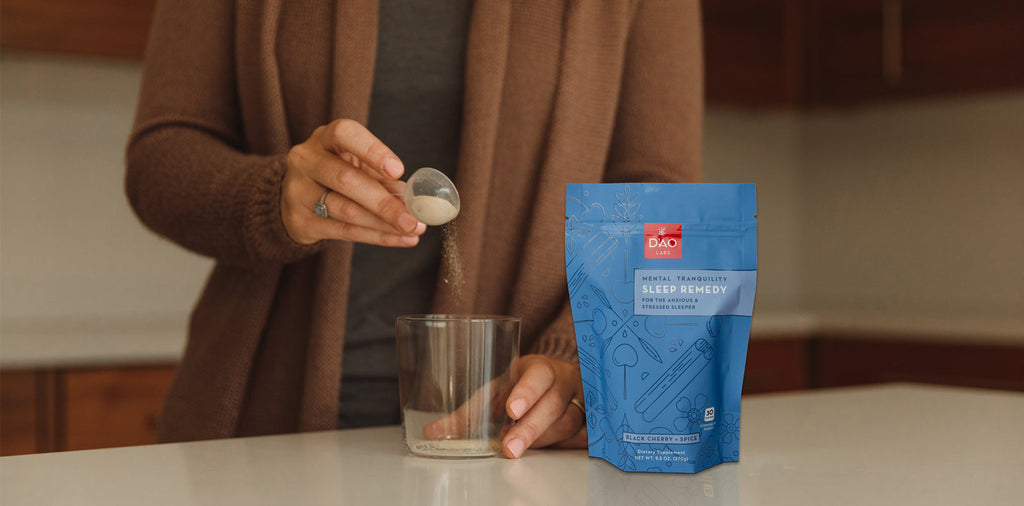Have you ever experienced issues that seem unrelated and random, but also coincide? Maybe you have a hard time falling asleep and turning your brain off at night, but you also experience stress during the day? What if you need digestive support at the same time? Does one have anything to do with the other? Even if it seems like these symptoms are unrelated, the good news is that from a Chinese medicine perspective, a lot of the time, it all makes sense!
One of the beautiful aspects of Chinese medicine is its holistic approach—viewing symptoms as signals of underlying imbalances within the entire body. Rather than seeing discomfort as isolated events, traditional Chinese theory suggests that chronic issues often begin as mild, recurring signs. Over time, these may reflect deeper patterns in how the body’s energy systems and organs interact.
The goal of Chinese medicine is to help support overall balance and harmony in the body, which may contribute to a greater sense of well-being over time.
One of my favorite things about Chinese herbal medicine is its versatility—how one formula can support a variety of wellness needs. DAO Labs’ popular Mental Tranquility is a great example. Traditionally used to promote calm and help quiet a busy mind at night, it’s a favorite for those looking to support more consistent, restful sleep and wake up feeling more refreshed.
But that’s not all Mental Tranquility can offer—its herbal ingredients have a history of broader use in supporting emotional balance and overall mental clarity.
How does Mental Tranquility work?
Mental Tranquility is based on the classic Chinese medicine formula called Return to Spleen (Gui Pi Tang). Return to Spleen is a formula that benefits and nourishes Spleen Qi and Heart Blood. This formula is traditionally used to support overall wellness in individuals experiencing certain patterns of imbalance, according to Chinese medicine.
In Chinese medicine, the Spleen and Stomach are the organs that work together to ensure proper digestion. These organs receive food that we eat, and in the process of digestion, the Spleen extracts Qi and uses some of it to produce Blood. This Qi is the starting point for the production of all Qi and Blood in the body. Qi is energy that we need for the body’s internal systems to properly function, and Blood is a vital nourishing substance in the body. Blood is also important for anchoring the Spirit at night for calm and peaceful sleep.
Mental Tranquility benefits the mental aspects of the Spleen and Heart. The Spleen influences Thought, which is our capacity for thinking, studying, concentrating, focusing and memorizing. The Heart is associated with the Spirit, which is vital for all cognitive functioning and quality sleep. Overthinking and excessive worrying can cause imbalance in Spleen Qi and Heart Blood.
When these are not in balance, you lose the ability to concentrate and can become forgetful.

What Are Other Benefits of Gui Pi Tang (Mental Tranquility)?
Altogether, this makes Mental Tranquility a great choice for improving mental clarity during the day. This formula is perfect for focusing on a work project or presentation, studying for finals, or any time you need an extra boost of concentration. In addition to the sleep benefits, Mental Tranquility is traditionally used to support calm, focus, and general vitality as part of a holistic wellness approach.
he power of Chinese herbal medicine lies in its ability to support the body holistically, even when different wellness concerns seem unrelated. As long as you are working on an underlying pattern, formulas can be used for many different issues. Mental Tranquility can be used for day or night. Enjoy as part of your daily wellness ritual—many use it at night to unwind or during the day when focus is needed.
References
Barolet, R., Bensky, D., Ellis, A., & Scheid, V. (1990). Chinese Herbal Medicine: Formulas &
Strategies, 2nd Edition. Seattle, WA: Eastland Press, Inc.
Maciocia, G. (1989). The Foundations of Chinese Medicine: A Comprehensive Text for Acupuncturists and Herbalists. Edinburgh, London: Churchill Livingstone.
















